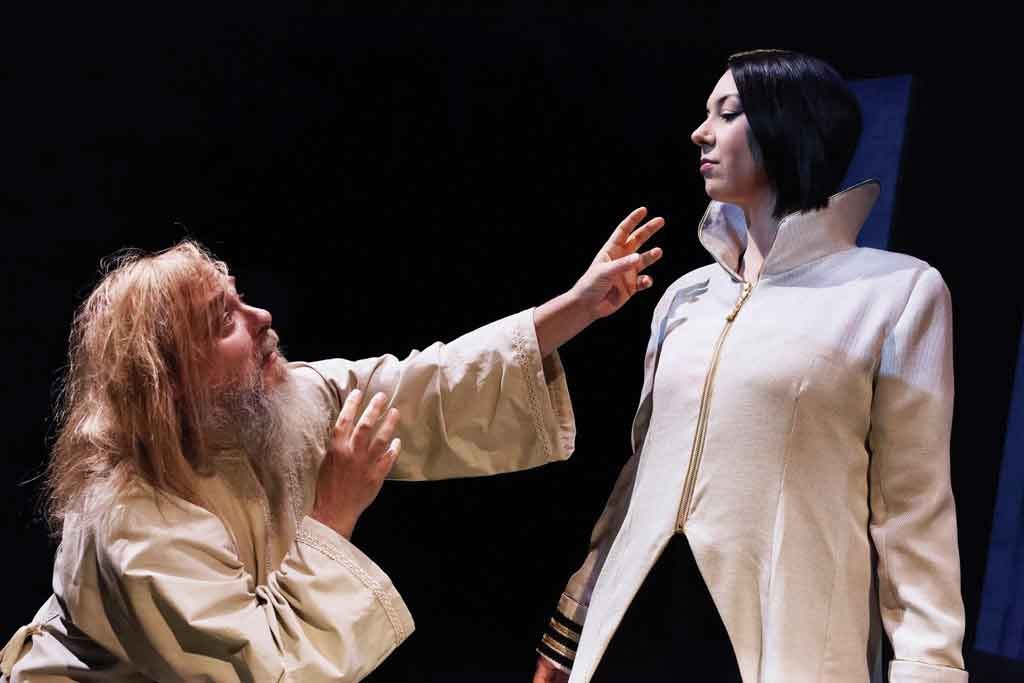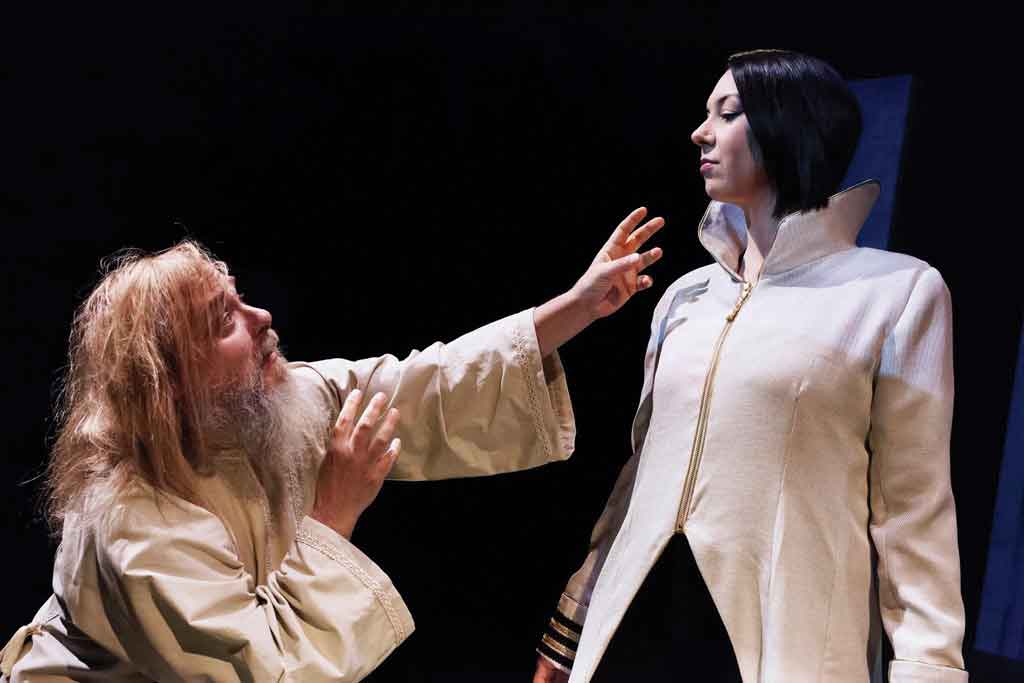By Katie Stobbart (The Cascade) – Email
Print Edition: February 18, 2015

“What if Caesar were a general who managed to eradicate terrorism from the world?”
It’s a hypothetical question at the centre of UFV’s upcoming production of Shakespeare’s Julius Caesar, directed by Bruce Kirkley. The production will take a futuristic approach to the historical drama with suit jackets in place of togas and conference call conspiracies.
The performance will be set about 15 years from now, whereas Caesar’s assassination took place in 44 BCE: closer to us in time, yet still unreachable. The aim is to cast a new light on the events of antiquity.
If someone discovered a way to rid the world of terrorism, that person would become beloved of the people, Kirkley speculates, and the ramifications of that could play out similarly to even the very distant past.
“Those in power, like Marc Antony … see this opportunity to seize this moment and crown Caesar — this commander, this great general — as emperor of the West and this kind of real global government. Then there are those quite honourable Romans who want to preserve and maintain the republic — the democratic republic,” Kirkley explains, projecting the events of the past onto the imagined almost-present.
“In a way, that actually helps us today maybe make sense of those events of over 2,000 years ago, where you have these Romans conspiring to assassinate someone who has actually done all these amazingly heroic things for the state,” he says.
Kirkley adds that the West today holds similar political ideals as Rome did when Caesar was murdered, and that the story may be an important reminder that democracy is not a given.
“We’ve all grown up with democracy,” he says, “and we forget sometimes that the democratic experiment has only been around for a few hundred years — not that long in the whole course of human history.
“It’s not a foregone conclusion that democracy will just keep going now from here on. Democracy and the freedoms that we have are something we have to remain constantly vigilant about.”
Placing events even a stone’s throw into the future means the cast and crew will be using more tech than the playwright could have imagined.
In the conspiracy scene for example, which features the Roman conspirators plotting via conference call, most of the actors are not onstage, but up on the catwalk in camera stations. Live images of them are projected onto five onstage panels as well as three screens above house left and right.
The combination of live action with technical elements not only builds the future within the theatre; the contrast exposes a commentary on the way historical events are delivered to a non-theatrical audience in the time of their occurrence. Kirkley suggests the contrast between live action and remote (but still live) images echoes the way media interrupts the immediacy of warfare, for instance.
“The contrast happening [is] quite interesting … between those events that are very much mediated [via technology] and other events in the play which are just live actors interacting with one another. In addition to creating remote images of warfare, we have actual fight choreography and the actors are actually engaging in hand-to-hand combat.”
Added to that, Kirkley says, is the fact that live theatre itself is form of mediation.
The performance will blend past and future, with actors speaking the lines as they were written in the first folio of Shakespeare’s play but acting out the scene with futuristic set, costumes, and props. Many of the images and symbols used, however, are historical. So the influences behind the design also weave time periods together.
Kirkley says the main source of inspiration for the clean and simple future elements come from the film Gattaca. Symbols of the Roman Republic, the flag and victory wreath, are incorporated into the play, and a Stalinist or Soviet style of propaganda is used, with animations added to give it a place in the future.
“It’s that sense that in many ways the future is often a reinvention of things that have already been,” Kirkley says. He also says one of the most exciting parts is getting to experiment with something not many theatres have tried: that unique approach to incorporating technology with live theatre.
“I’m not saying we’re breaking new ground, but we are kind of out there on the vanguard … of a new way of working with theatre and live performance.”


